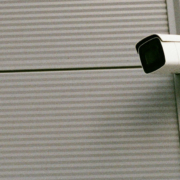How a 7000-year-old technology helps making stores Cashierless
Did you know that the Egyptians invented something more than 7000 years ago that helps making stores cashierless?
The scale. One plate holds an object of unknown mass, and the other plate a known mass. When the plates level off, the masses on both sides must be equal.
Modern scales don’t have to be manually operated anymore, but the function basically is still the same. But why mention this topic on a cashierless page? What’s interesting is, that nowadays scales can play an important part in making stores cashierless.
So how does it work? Basically, the customer downloads an app and scans the barcode on the product or in case of loose items on the shelf. He then puts the items in the shopping cart. So far so good. Unlike we know from scan-only technology the customer cannot leave the store by only passing service personnel. Once the shopping is finished the basket must be validated. And that’s where the scale comes in place.
The customer places the whole shopping cart on a scale and checks in with his app. Within seconds the cart gets weighed and the items visually approved by cameras above the shopping cart. Once done payment gets processed and the customer can leave the store.
Sounds simple, but as always with cashierless solutions there’s some high-tech involved. To validate the products AI does its job. Fortunately, the customer doesn’t need to worry about that.
German SME Bizerba, famous for its weighing and slicing technologies, offers their product named “Supersmart Scan & Go Loss Prevention System”. The system was developed in cooperation with an Israeli startup and is already in use in several Metro Stores and tested by Edeka.
Here’s what we think.
Pros
- Fast checkout and no queues for customers
- Validation of purchase, both merchants and customers profit
- Possible product recommendations and use of data to improve shopping experience
Cons
- Scanning of products necessary
- Some customers might not want to download another app
- Possible privacy concerns







